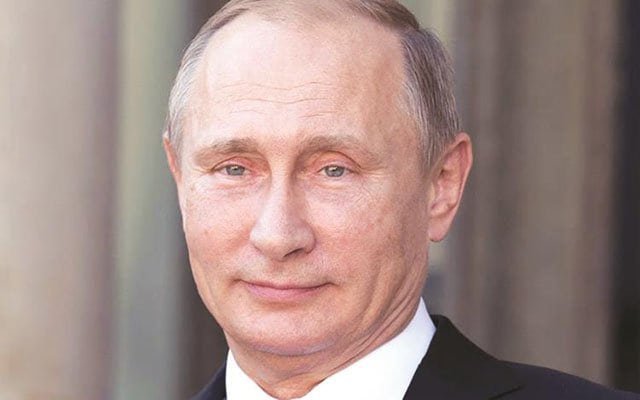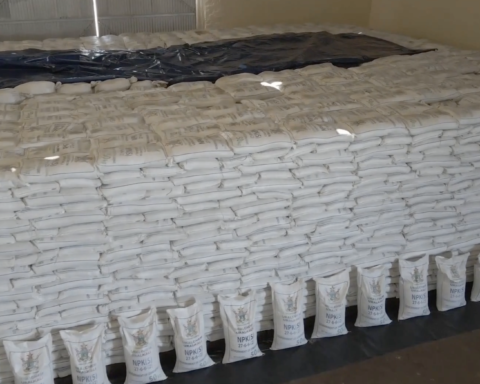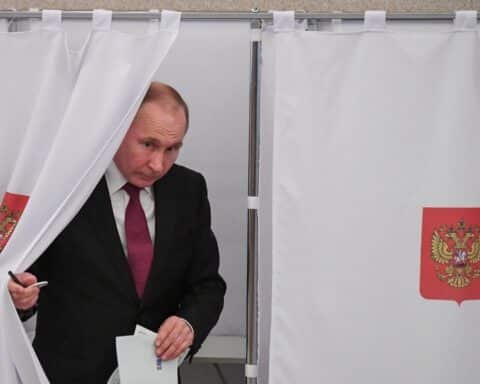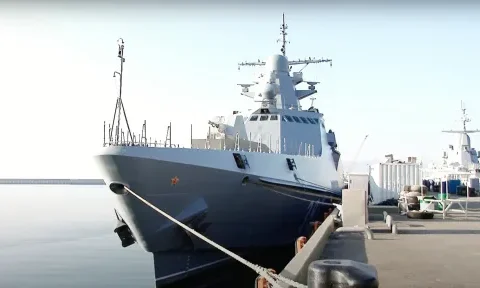Russia has floated out the world’s largest nuclear-powered icebreaker ship as the country moves to reinforce its leadership in the Arctic.
Crowds gathered to watch as the Sibir, designed to transport cargo along the Northern Sea Route, was launched into the water at the Baltic Shipyard in St Petersburg.
She is powered by two nuclear reactors and will be able to break ice fields up to three metres thick, clearing the path for Russian ships delivering gas to Asia.
The Sibir’s displacement, a term for measuring a ship’s size, is 33,500 tons and is 173 metres long.
Along with the Arktika, put into active service last year, and the Ural, the three ships will become the “world’s largest and most powerful nuclear-powered icebreakers”, according to TASS Russian News Agency.
Named Project 22220, the shipbuilding has been described as Russia’s biggest military push since the fall of the Soviet Union.
Russian authorities want to maintain control in Arctic waters due to drilling opportunities, minerals and strategic importance.
The monster ships will also carry out rescue work.
Putin watches Russia’s military might on display in war games
“Nuclear energy ensures Russia’s undisputed leadership in the far north,” said Vyacheslav Ruksha, head of Atomflot, a state-owned company that manages the ships.
“But only with nuclear icebreakers can our country fully unveil all possibilities and advantages of the Northern Passage to the world.”
Russia plans to build another vessel called The Leader, which will break through ice up to 4.5 metres thick, and keep the Northern Sea Route and Arctic coast open all year round.
As reported by The Mirror, Alexei Rakhmanov, president of United Shipbuilding Corporation, added: “This means that an all year round navigation along the Northern Sea Route will take place literally tomorrow.
“This means that Russia will consistently carry out its obligations before its foreign clients on delivery of hydrocarbons or special strategic cargo which Russia is famous for.








